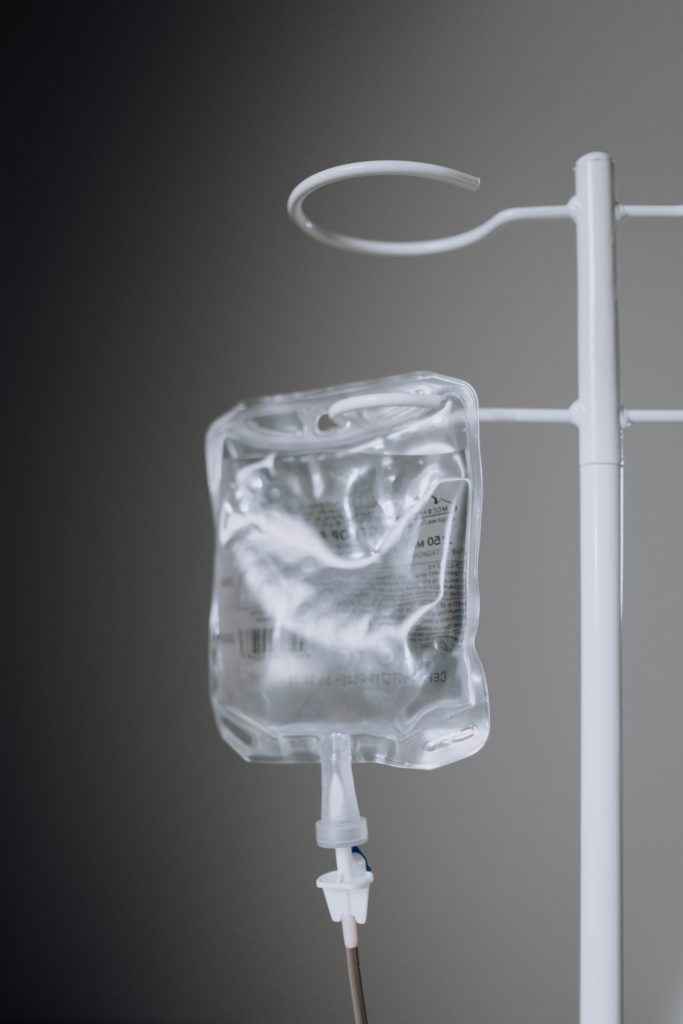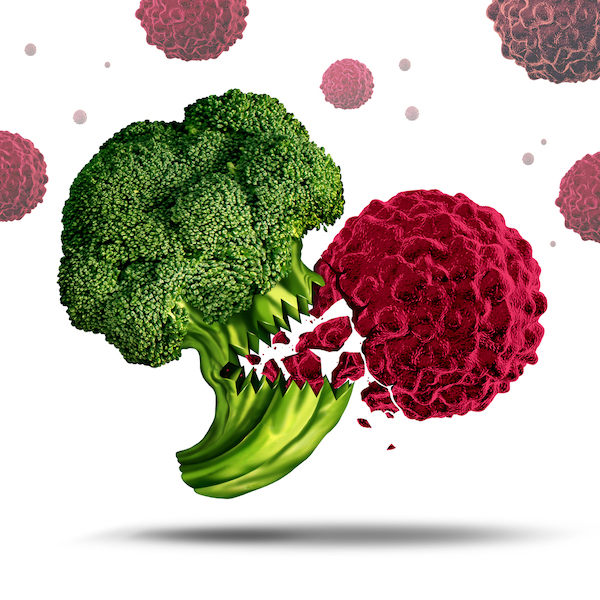The role of high dose vitamin C therapy for cancer remains controversial even with hundreds of published research articles showing benefits. What we do know for sure is that ascorbic acid can selectively increase internal peroxide poisoning of cancer cells, without harming noncancerous cells.
IV vitamin C has been shown to stabilize many types of tumors, including stopping the growth and spread of tumors. Best results are seen with the following: bladder, breast, cholangiocarcinoma, colorectal, gastric, glioblastoma, kidney, lymphomas, leukemia, lung NSCLC, multiple myeloma, ovarian, pancreatic, and prostate cancers. Shown to lower PSA and ALP levels in prostate cancer. New research findings are published around the world every year.
Vitamin C has been shown to reduce chemical toxicity to your DNA and liver. Patients given HDVC IVT benefit from less fatigue, reduction in nausea, improved appetite, reductions in depression, fewer sleep disorders, increased platelet count, and decreased pain.
The myth of kidney stone (oxalic acid) risk still lingers in the medical field even though it has been dispelled in recent studies. Oxalic acid levels remain well controlled with high doses of vitamin C. Vitamin, even up to or over 100 grams has been shown safe and tolerated very well with very few side effects.
Vitamin C acts as a pro-oxidant at higher doses, rather than an anti-oxidant at lower levels, and can be helpful during many of the chemotherapy drug cycles. High dose IV vitamin C can be used safely in conjunction with chemotherapy (with the exception of Erbitux and Cetuximab) and radiation in certain situations. We encourage our patients to make their oncological team is aware of their plan to incorporate vitamin C as a supportive treatment modality.
Vitamin C’s oxidizing reaction is due to its interacts with oxygen and iron to cause the formation of high concentrations of hydrogen peroxide (H2O2) in tissues. Peroxide is used by immune cells to kill foreign invaders and cancer cells. Vitamin C also depletes ATP (a cell’s energy source) and causes DNA damage to cancer cells.
Ascorbic acid blood levels are tightly regulated by your body. First, in the amount that can be absorbed across the small intestine, and secondly excess Vitamin C in the blood is rapidly filtered out by your kidneys. Higher oral doses oddly enough have a reduced absorption rate. The higher the dose you “eat” the less is absorbed. The body prefers oral doses under 500 mg within a 2-hour period. So, eating/drinking excess Vitamin C has limited therapeutic value. Also, oral high doses often trigger diarrhea.
- Vitamin C can act as a blood thinner so caution is taken with some medications.
- High dose vitamin C therapy requires a lab test called G6PD (glucose-6-phosphate-dehydrogenase) before we can start Vitamin C IVs above 15 grams.
- High dose vitamin C (HDVC) therapy can deplete copper levels, so copper needs to be in your multi-vitamin formula, and/or you may need additional supplementation.
- HDVC below 20g is not recommended during radiation therapy, as it decreases pro-oxidant adverse effects.
- Make sure you’ve eaten before (or during) a HDVC IV. This therapy may lower your normal blood sugar levels for a few hours.
- R-lipoic acid – take 100-200 mg prior to a Vitamin C IV to increase tissue response to the Vitamin C.
- Do not take high dose green tea EGCG therapy or N-acetyl-cysteine NAC on days of IV Vitamin C infusions, as they counteract the treatment.
- Total IV “drip” time is 1-3 hours, depending on dose of Vitamin C in the bag
- Research Articles (a small selection):
- (1978) Cameron E, Pauling L. “Supplemental ascorbate in the supportive treatment of cancer: reevaluation of prolongation of survival times in terminal human cancer.” Proceedings of the National academy of Science of the USA. 1978 Sep;75(9):4538-42.
- (2005) Levine M, Espey MG, Chen Q. “Losing and finding a way at C: new promise for pharmacologic ascorbate in cancer treatment.” Free Radic Biol Med. 2009 Jul 1;47(1):27-9. doi: 10.1016/j.freeradbiomed.2009.04.001. Epub 2009 Apr 8.
- (2005) Chen Q, Espey MG, Krishna MC. “Pharmacologic ascorbic acid concentrations selectively kill cancer cells: Action as a pro-drug to deliver hydrogen peroxide to tissues.” Proc Natl Acad Sci U S A. 2005, 102: 13604-13609. 10.1073/pnas.0506390102.
- (2009) Ohno, et al. “High High Dose Vitamin C Peer-Reviewed ArticlesHigh Dose Vitamin C Peer-Reviewed ArticlesOncology ReferencesHigh Dose Vitamin C Peer-Reviewed Articlesdose Vitamin C (Ascorbic Acid) Therapy in the Treatment of Patients with Advanced Cancer.” Anticancer Research March 2009 vol. 29 no. 3 809-815.
- (2014) Carr, Anitra C et al. “The effect of intravenous vitamin C on cancer- and chemotherapy-related fatigue and quality of life.” Frontiers in oncology vol. 4 283. 16 Oct. 2014, doi:10.3389/fonc.2014.00283
- (2015) Michael J. Gonzalez NMD, DSc, PhD, FANMA, FACN, Jorge R. Miranda-Massari PharmD, Jorge Duconge PhD, Miguel J. Berdiel MD. Increasing the Effectiveness of Intravenous Vitamin C as an Anticancer Agent. Journal of Orthomolecular Medicine Volume 32, Number 1, 2017
- (2017) “High doses of vitamin C to improve cancer treatment passes human safety trial.” Science Daily, Cell Press. March 30, 2017.
- (2017) University of Iowa Health Care. “Why high dose vitamin C kills cancer cells: Low levels of catalase enzyme make cancer cells vulnerable to high dose vitamin C.” Science Daily. January 9, 2017. https://www.sciencedaily.com/releases/2017/01/170109134014.htm.
- (2018) Carr, Cook. “Intravenous Vitamin C for Cancer Therapy – Identifying the Current Gaps in Our Knowledge.” Front. Physiol., 23 August 2018 https://doi.org/10.3389/fphys.2018.01182
- (2019) Gonzalez, et al. “Increasing the Effectiveness of Intravenous Vitamin C as an Anticancer Agent.” International Society for Orthomolecular Medicine. Volume 34, Number 2, 2019.
- (2019) van Gorkom, Gwendolyn N Y et al. “The Effect of Vitamin C (Ascorbic Acid) in the Treatment of Patients with Cancer: A Systematic Review.” Nutrients vol. 11,5 977. 28 Apr. 2019, doi:10.3390/nu11050977
- (2020) Roa, Francisco J et al. “Therapeutic Use of Vitamin C in Cancer: Physiological Considerations.” Frontiers in pharmacology vol. 11 211. 3 Mar. 2020, doi:10.3389/fphar.2020.00211
Related Blog Articles:



